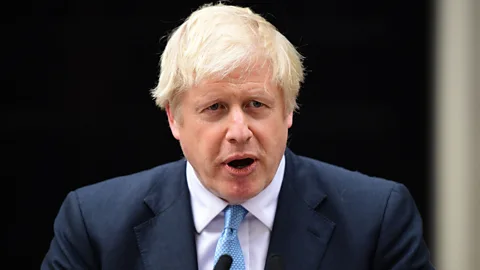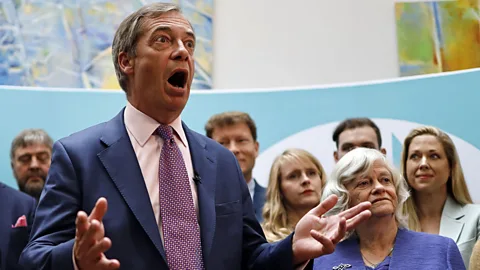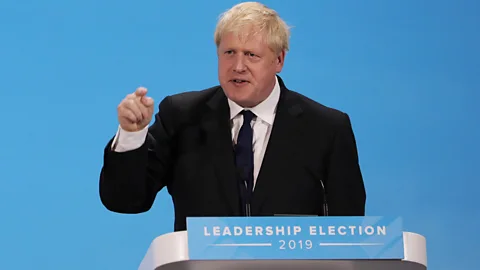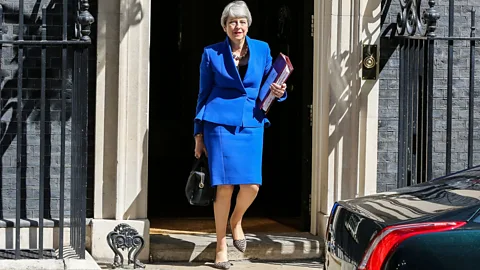You Predict the Future: What will happen with Brexit?
 Getty Images
Getty ImagesNine months into BBC Future and Nesta’s prediction challenge, we’ve checked in on our readers’ predictions on Brexit, the European elections and the fate of the pound.
Never has the phrase “a week is a long time in politics” been truer than during the past few months in the UK. A new prime minister has taken office, Parliament has been prorogued and Brexit has continued on its rocky path.
Since January, BBC Future has been hosting You Predict the Future: Brexit and Beyond, a forecasting challenge with innovation foundation Nesta. We have been inviting our readers to take part in predicting the outcomes of everything from alternative meats and hurricanes to Brexit and the European elections. Following our July 2019 update of how the forecasters have been doing, here are our latest results from the challenge.
More like this:
On 23 May 2019, the UK took part in the European Parliamentary elections, which went on until the 26 May 2019 around Europe and saw the UK elect 73 MEPs across the regions. Participants were asked two questions about the election:
“If the UK participates in European Parliament elections, what percentage of votes will the Brexit Party win?
If the UK participates in European Parliament elections, what percentage of votes will Change UK win?”
(Since this question was published, Change UK’s name has been changed to The Independent Group for Change.)
Both questions were open to forecasters from 3 May until 22 May 2019. On the date of closure, forecasters put the likelihood of the Brexit Party getting between 30% and 35% of the national vote at 33%. Forecasters appeared confident that the Brexit Party would gain a substantial proportion of votes – they gave the party a 12% chance of gaining less than 20% of the vote.
Once votes were counted and announced, the Brexit Party won 31.6% of the vote share, giving them 29 MEPs.
In other words, our forecasters were spot on, correctly predicting the outcome of the election for The Brexit Party on the eve of the UK’s vote.
 Getty Images
Getty ImagesWith Change UK, there was a clear pattern of shifting confidence in how they would do over time. When the question opened, forecasters thought there was a 75% likelihood of Change UK receiving between 5% and 10% of the vote share. By the time the question closed, this had fallen to a 30% likelihood. Forecasters were clearly losing confidence in Change UK’s chances as time went on. At the close of the question, the proposal that the party would receive less than 5% of the total vote share was given a 55% likelihood.
In the end, Change UK received 3.4% of the vote share in the European elections across the UK.
Again, the forecasters got it right. (You can see the UK results for the European elections here, and the Europe-wide results here.)
Balancing the books
Our challenge forecasters have also been taking on the ever-tricky question of exchange rates. They were asked: “What will be the closing value for the pound against the euro on 1 November 2019?” This question is still open, and these results are from forecasts as they stood up to 4 September 2019.
June was a month that saw political uncertainty in the UK, with Theresa May officially announcing her resignation as prime minister on 7 June 2019, and the Conservative Party conducting a poll of members to select the new leader of the party, and in turn, the new prime minister. On 23 July 2019 it was announced that Boris Johnson had won the leadership race.
 Getty Images
Getty ImagesThe most popular predictions for the exchange rates outcome in June were that it would be “more than €1.10 but less than €1.20” and “between €1.00 and €1.10, inclusive”, during June and the first two weeks of July. But as the month wore on and Johnson’s premiership became apparent, the forecasters leaned to the more conservative “between €1.00 and €1.10, inclusive”, which was the most popular prediction by 4 September 2019, with forecasters predicting a 49% likelihood of this outcome. But only time will tell whether they will be correct at the start of November. (You can read more about how the forecasters predicted exchange rates up to April here.)
Brexit bonus
Finally, forecasters have been tackling one of the most difficult political predictions of the year so far: “Between 3 May 2019 and 1 November 2019, which of the following will happen first in relation to the Brexit process?” Forecasters estimated the likelihood of the following possibilities:
a) The UK will leave the EU with the November 2018 Withdrawal Agreement in place
b) The UK will leave the EU with a new or renegotiated version of a Withdrawal Agreement in place
c) The UK will leave the EU without a Withdrawal Agreement in place
d) The UK will revoke Article 50
e) The UK’s Article 50 period will be extended beyond 31 October 2019
f) The UK will set a date for a general election
g) The UK will set a date for a referendum on Brexit
The results we have are for predictions made up until 4 September 2019.
The question has seen huge changes in predictions over time. In early May, option G, for the UK to have set a date for a referendum was given a 39% likelihood. But that relative certainty didn’t last. On 4 September 2019, forecaster confidence in this outcome had dropped to just a 6% likelihood.
Instead, the most popular prediction on 4 September 2019 was option C, that the UK would leave the EU without a deal. This option had only been assigned a 8% probability by the forecasters in early May, but that surged to a 30% likelihood by early September.
 Getty Images
Getty ImagesInterestingly, we saw a spike in the number of participants making forecasts at the end of August and the first few days of September that we have results for. These were also days of political uncertainty in the UK. We can see that not only did more forecasters make predictions on those days, but that some people were making more than one prediction per day. Like many good forecasters, participants were ensuring they updated their predictions in the light of new information and developments in the political situation. (Read more about how to make better predictions about the future.)
There is still time to sign up for the challenge [Update: The challenge is now closed], and you can read more about the benefits of taking part here.
Note: The survey is run by Good Judgment and they will be responsible for any personal data you provide. Read the site's privacy policy.
Amy Charles is BBC Future’s social media producer. She is @amycharles on Twitter.
--
If you liked this story, sign up for the weekly bbc.com features newsletter, called “The Essential List”. A handpicked selection of stories from BBC Future, Culture, Worklife, and Travel, delivered to your inbox every Friday.
